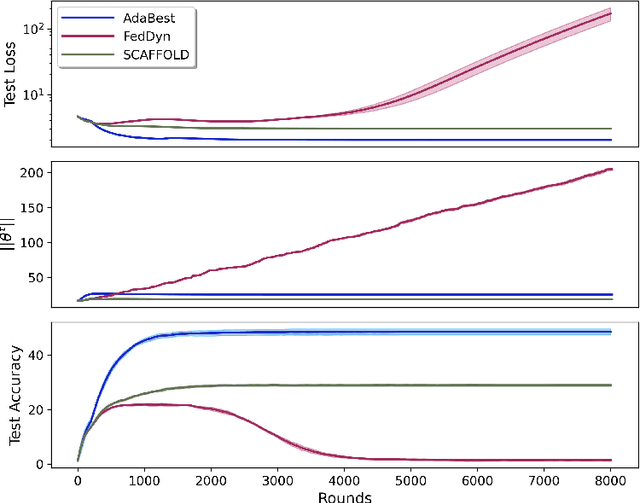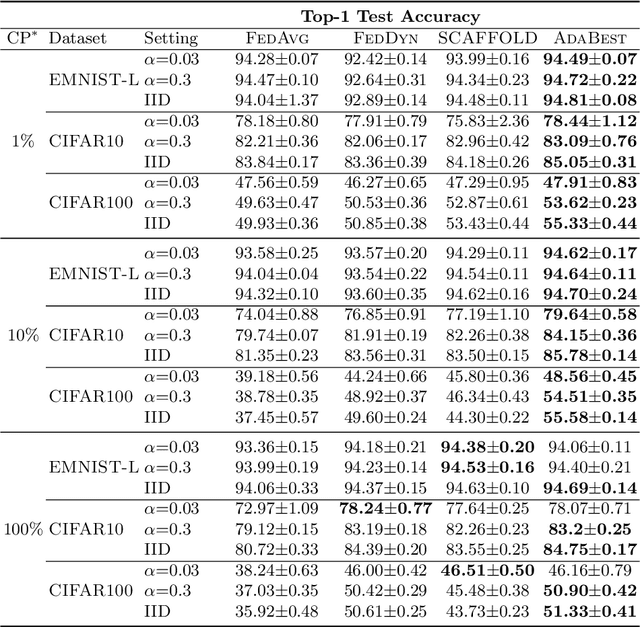Minimizing Client Drift in Federated Learning via Adaptive Bias Estimation
Paper and Code
Apr 27, 2022



In Federated Learning a number of clients collaborate to train a model without sharing their data. Client models are optimized locally and are communicated through a central hub called server. A major challenge is to deal with heterogeneity among clients' data which causes the local optimization to drift away with respect to the global objective. In order to estimate and therefore remove this drift, variance reduction techniques have been incorporated into Federated Learning optimization recently. However, the existing solutions propagate the error of their estimations, throughout the optimization trajectory which leads to inaccurate approximations of the clients' drift and ultimately failure to remove them properly. In this paper, we address this issue by introducing an adaptive algorithm that efficiently reduces clients' drift. Compared to the previous works on adapting variance reduction to Federated Learning, our approach uses less or the same level of communication bandwidth, computation or memory. Additionally, it addresses the instability problem--prevalent in prior work, caused by increasing norm of the estimates which makes our approach a much more practical solution for large scale Federated Learning settings. Our experimental results demonstrate that the proposed algorithm converges significantly faster and achieves higher accuracy compared to the baselines in an extensive set of Federated Learning benchmarks.
 Add to Chrome
Add to Chrome Add to Firefox
Add to Firefox Add to Edge
Add to Edge